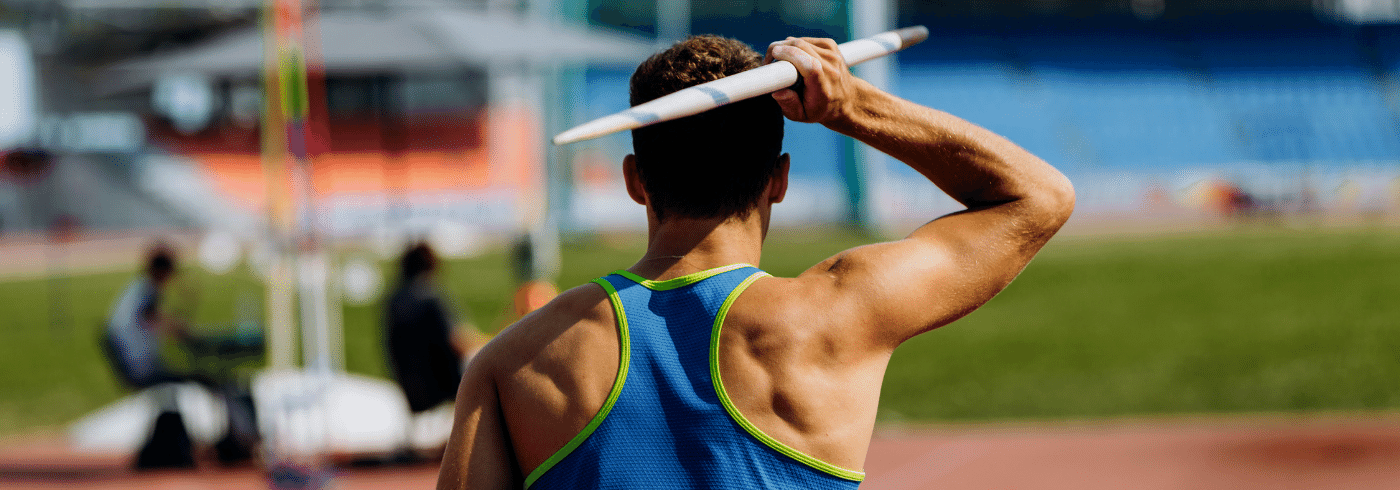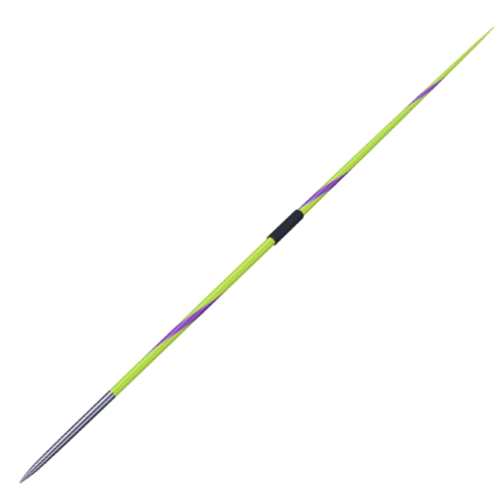
How to Choose A Javelin
Many athletes who come to us often ask what the best javelins are based on their colour and prices. However, we certainly don't believe this is what you should be looking at when it comes to buying a javelin for your training and competitions!
Depending on the manufacturer, javelins are rated in different ways. With this in mind, it's vital to know what javelin is most suited to your throwing style...
In our latest "How to" video, we talk you through the different rating systems, why they matter, and how each system differs!
PLEASE NOTE: We refer to Nordic, Nemeth & OTE Javelins in this video. However, the principles are practically the same for most javelins!
On another note, after filming this video, some of the ratings have now changed. Please refer to either our website or the manufacturer's website directly for up to date ratings and diagrams!
WHAT ARE THE DIFFERENT RATINGS FOR JAVELINS?
JAVELIN DISTANCE RATINGS
Javelins rated using this system are categorised by 40m, 50m, 60m, 70m etc.
JAVELIN FLEX RATINGS
These ratings are worked out by placing the javelin on two flat surfaces (with a gap in the middle), hanging a weight on the javelin's centre, and seeing how much movement there is.
The higher rating... the softer the javelin. The lower the rating... the stiffer the javelin!
Broadly speaking, a high flex rating is equal to a low distance rating and vice versa.
WHY DO JAVELIN RATINGS MATTER?
Both ratings are fundamentally worked out in the same way. They're just presented differently!
When throwing a javelin, you're releasing it where it's point on. You're throwing it end on into the air, and the air resistance that comes back on that javelin will be different depending on the exact angle of the javelin release.
If you're highly technically skilled and can get the javelin released in a very straight clean release, there will be less wind resistance as the nose of the javelin cuts through the air.
If you're not so technically advanced, the air force pushes further down the shaft of the javelin, creating more power and kick back to come through the shaft of the javelin, which then enters the throwers arm and then into the elbow and shoulder.
If a developing thrower or one that is less technically proficient throws too stiff a javelin, there's a much greater risk of injury!
THE IMPORTANCE OF AERODYNAMICS IN JAVELIN THROWING...
You'll see an arc when throwing, which is natural for the javelin.
A distance rated javelin of 80m for example, requires 60m distance in order for the javelin to turn nose down. If someone who's throwing 50m throws an 80m javelin, it will fall out of the sky tail down, as the javelin won't have enough momentum to get past the top of the arc of flight.
Therefore, a javelin with a shorter distance rating or a higher flex number would have the centre of gravity further towards the tip of the javelin. On the other hand, a javelin that needs to go further and has a longer distance to travel before it turns would have the centre of gravity further towards the javelin's centre.
JAVELIN RATING SYSTEMS
OTE & NEMETH JAVELINS

These are distance rated. Visibly, there's not much difference between these two manufacturers aside from the paintwork. However, depending on which javelin you choose, the flex and the centre of gravity will differ!
NORDIC SPORT JAVELINS
View our full Nordic range here.
As mentioned previously, the ratings mentioned in the video are different to what they are now! However, their javelins can still be described in the same manner as before in terms of which javelins are best for beginner athletes, intermediates etc...
NORDIC VIKING
This is a really good javelin for beginner athletes looking to improve their discipline!
NORDIC DIANA CLASSIC
An excellent javelin for top-level throwers and elite athletes!
NORDIC CARBON XENA
This is a highly technical javelin. If you're an elite thrower with an outstanding release, the Xena is going to be an excellent option for you with its stiff responsiveness.
NORDIC VALHALLA
A very stiff rated javelin for experts and elite athletes!
WHAT ABOUT THE TIP OF THE JAVELIN?
The tips can generally be placed into two different categories. They can have either very pointed or sharp noses or blunter tips and noses.
The shorter distance rated javelins generally have sharper noses. For elite javelins, you often have the choice as to what tip you'd like.
Sharper tips are often classified as "headwind", whereas the blunter tips are often known as "tailwind".
THE GENERAL RULES OF CHOOSING A JAVELIN!
- Try not to choose a 10m higher-rated javelin that you are currently throwing.
- Your coach is the person who knows you best. Get their advice on which javelin is best for you!
- If you don't currently have a coach, you can always send us a video of your throwing, and we can ask some of the top coaches from the UK to give you advice on what throwing implement will be best for you!
To find out how to get in touch with our coaches, please click this link!
For any other questions, our helpful team is available for further advice! Contact us at sales@neuff.co.uk or on +44 1752 893472.






Comments
Leave a comment